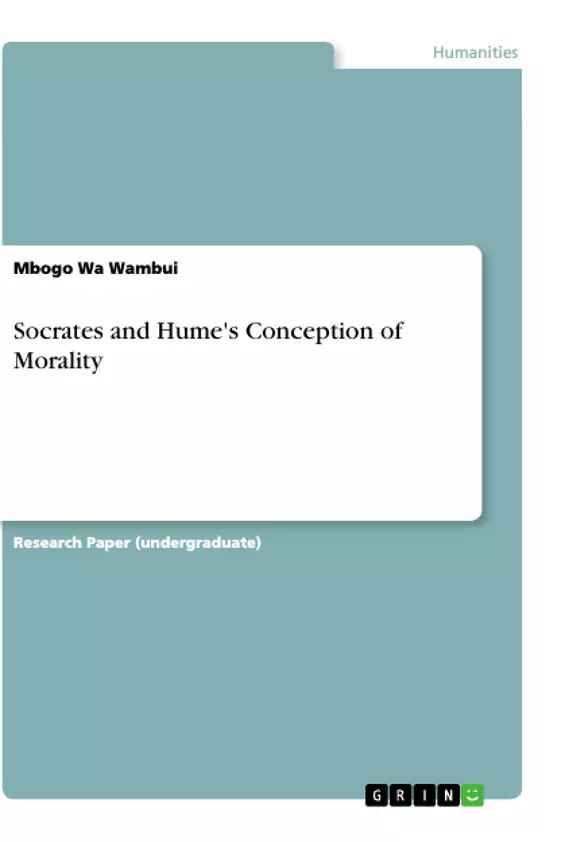In this paper, I set forth to explain the conceptions of morality by both Socrates and David Hume with the aim of bringing out the basis of their contrasting views on morality. In the second part, I will outline the implications of Hume’s account of morality on the moral sphere. I will begin with Socrates, then Hume in outlining their views.
Socrates, c.a 470-399 BC was an active philosopher in what is called the anthropocentric period . That is 450-400 BC. During this period the major themes in Philosophy focused on the ‘internal’, that is, knowledge and ethics. Born a poor man, a son of a stone cutter, Socrates, is said to have become a stone mason but left his job in order to find out about life, about himself and about goodness.
David Hume on the other hand was born in Edinburgh in 1711 AD. He lived during the Enlightenment. In this era, the major philosophical concerns were whether knowledge is attainable through reason or through experience/sense perception. That is, rationalism and empiricist schools of thought.
Inhaltsverzeichnis (Table of Contents)
- INTRODUCTION
- PART ONE
- PART TWO
Zielsetzung und Themenschwerpunkte (Objectives and Key Themes)
This paper aims to compare and contrast the conceptions of morality by Socrates and David Hume. The paper will analyze the basis of their contrasting views on morality and explore the implications of Hume's account of morality on the moral sphere.
- The role of reason and knowledge in morality
- The nature of virtue and its relationship to happiness
- The objectivity or subjectivity of moral values
- The influence of cultural context and tradition on moral views
- The relationship between ethics and epistemology
Zusammenfassung der Kapitel (Chapter Summaries)
- INTRODUCTION: This chapter introduces the two philosophers, Socrates and David Hume, placing them within their respective historical contexts and outlining the paper's scope and objectives. It highlights the contrasting periods in which they lived - the anthropocentric period for Socrates and the Enlightenment for Hume - and the different philosophical concerns that were central to their respective eras.
- PART ONE: This section focuses on Socrates' conception of morality. It explores his view that virtue is knowledge, and that ethical wrong actions stem from ignorance. The chapter discusses Socrates' belief in universal ethical concepts and the importance of conceptual analysis in ethical behavior. It also examines his connection between happiness, virtue, and self-knowledge.
Schlüsselwörter (Keywords)
The paper explores the conceptions of morality of Socrates and David Hume, focusing on key themes such as virtue, knowledge, happiness, reason, feeling, objective and subjective values, and the role of epistemology in ethics. It also examines the impact of cultural context and historical periods on philosophical perspectives on morality.
- Arbeit zitieren
- Mbogo Wa Wambui (Autor:in), 2010, Socrates and Hume's Conception of Morality, München, GRIN Verlag, https://www.grin.com/document/703504



